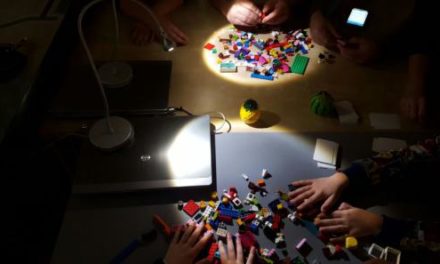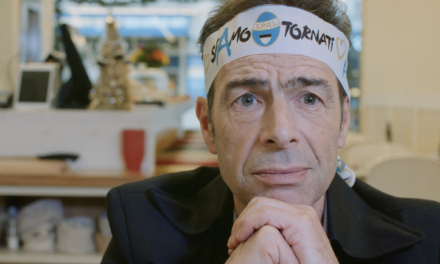The artistic director of the Rome Film Festival (Festival Internazionale del Film di Roma, November 9-17, 2012), Marco Müller, has announced the first of the two surprise films that will complete the roster of the Competition for the seventh edition: the film is Back to 1942 by FENG Xiaogang, which will be presented in its world premiere screening in Rome. The film by FENG, one of the most popular and best-loved directors in his country, the author of comedies, dramas and action films that have been huge box-office hits (he was the first Chinese filmmaker to gross over one billion Yuan, more than 146 million dollars, at the box office in China), will feature, in addition to the Chinese all stars cast, two Hollywood idols, Oscar®-winning actors Adrien Brody and Tim Robbins. In the film, the two actors will respectively play an American journalist and a Catholic priest stationed in China, during the war against Japan.
Back to 1942 by FENG Xiaogang, China, 2012, 135’
In 1942, Henan province was devastated by the most tragic famine in modern Chinese history, resulting in the deaths of at least three million men, women and children. Although the primary cause of the famine was a severe drought, it was exacerbated by locusts, windstorms, earthquakes, epidemic disease and the corruption of the ruling Kuomintang government. At night, hundreds of famished farmers descend with sickles and torches on the household of Landlord Fan (Zhang Guoli) in North Henan province. He holds the final stocks of grain in Laozhuang Village. Afraid of the angry mob, Fan prepares a banquet for them in his own home. But old feuds break out and his property is burnt to the ground in an accidental fire. Meanwhile, war is about to break out between Japanese troops and Nationalist forces in North Henan. The province’s full supply of grain is to be diverted to the Chinese troops. Realising the danger, provincial chairman Li Peiji (Li Xuejian) pays a visit to Generalissimo Chiang Kai-shek (Chen Daoming) in Chongqing, but doesn’t have the courage to speak up. Homeless and hungry, Landlord Fan is forced to join the millions of refugees who are walking on foot to Shaanxi province, where they have traditionally sought refuge in times of crisis. He is among the most fortunate, with his own donkey and cart to carry his 16-year-old daughter Xing Xing (Fiona Wang), loyal servant Shuang Zhu (Zhang Mo), and his tenant Hua Zhi (Xu Fan). On the perilous journey south, marching in the opposite direction to the Chinese army, Fan encounters three men facing a crisis: impassioned American journalist Theodore White (Adrian Brody), chef-turned-judge Old Ma (Fan Wei), and Father Simeone (Zhang Hanyu), who is losing his faith in God and turns to the pragmatic Italian priest Thomas Megan (Tim Robbins) for advice. As the weeks pass, the social difference between Fan and his servant Shuang Zhu steadily evaporate. They dream of a future, after the war, ruling as landlords together. Fan does the unimaginable and sells his own daughter – who begs for the opportunity to eat – to a brothel for a few quarts of millet. Shuang Zhu, who has long cherished Xing Xing, is brokenhearted. Shuang Zhu finds consolation when the older Hua Zhi offers to marry him. After one night with her new husband – having secured a new father for her starving children – she sells herself to slave traders. The family now have enough food to survive the perilous crossing of the border into Shaanxi. With nobody left to live for, Fan returns north again to die in his hometown. Theodore White publishes his scathing report on the extent of the famine in Time Magazine, embarrassing Chiang Kai-shek (Chen Daoming). The Generalissimo orders the Chinese troops to retreat, leaving the amassed Japanese army in complete confusion. Then the Japanese make a completely unexpected move and they begin feeding the famished population. An epic film, a blockbuster in the tradition of Gone with the Wind about the most massive population exodus in the last century. With bandits, battles and surprise twists of fate…
Director FENG Xiaogang
FENG became popular as an actor among Chinese audiences for his unique comedies in the 1990s exploring the dreams and aspirations of regular Chinese people. His representative works at this time are Jiafang yifang (The Dream Factory), Bu jian bu san (Be There or Be Square) and Mei wan mei liao (Sorry, Baby). In 2000, at the height of his success, he changed direction debuting as a director with breakthrough divorce drama Yisheng tanxi (Sigh). In the following years, he made action drama Tianxia wuzei (A World Without Thieves), ambitious palace intrigue Yeyan (The Banquet) that was based on Shakespeare’s Hamlet, and the epic war drama Jijie hao (Assembly) that demonstrated his ability to direct complicated action scenes as well as powerful melodrama. In 2008, his sophisticated and modern romantic comedy Feicheng wurao (If You Are the One) broke box office records to become the most successful Chinese film of all time. With Tangshan dadizhen (Aftershock), Feng brings together his technical abilities and his understanding of the human condition to create something startlingly new for Chinese-language cinema. FENG Xiaogang is not only the director of the greatest popular hits in China in recent years, blockbuster films that have been a triumph at the box-office, he is also one of the most versatile personalities in Chinese cinema. FENG Xiaogang is China’s most successful film director. In January 2009, he received international attention as the first Chinese filmmaker to cross one billion yuan ($146.5m) at the domestic box office.
International Rome Film Festival
Il direttore artistico del Festival Internazionale del Film di Roma, Marco Müller, ha annunciato il primo dei due film-sorpresa che andranno a completare il Concorso della settima edizione: si tratta di 1942 (Back to 1942) di FENG Xiaogang, che verrà presentato a Roma in prima mondiale. Il film di FENG, uno dei registi più popolari e amati in patria, autore di commedie, melodrammi e film d’azione di enorme successo (è stato il primo cineasta cinese ad aver superato il miliardo di yuan, oltre 146 milioni di dollari al box office nazionale), vede fra i protagonisti, accanto ad un cast cinese all-stars, due divi di Hollywood, i premi Oscar® Adrien Brody e Tim Robbins. Nel film i due attori interpretano rispettivamente un giornalista americano e un prete cattolico, durante la guerra contro il Giappone.
1942 (BACK TO 1942) di FENG Xiaogang, Cina, 2012, 135’
Nel 1942 la Cina assiste alla più tragica carestia della sua storia moderna, che provoca la morte di almeno tre milioni di persone nella provincia di Henan. La guerra tra le truppe giapponesi e i reparti dell’esercito nazionalista dell’Henan del nord è sul punto di scoppiare, e le intere forniture di grano della provincia vengono deviate verso le truppe cinesi, togliendole alla popolazione. Il proprietario terriero Fan (Zhang Guoli), assieme alla figlia sedicenne Xing Xing (Fiona Wang), al fedele servitore Shuang Zhu (Zhang Mo) e alla sua fittavola Hua Zhi (Xu Fan), si deve unire ai milioni di rifugiati che si stanno dirigendo a piedi verso la provincia dello Shaanxi. Durante il viaggio, Fan incontra tre uomini: l’appassionato giornalista americano Theodore White (Adrian Brody), lo chef diventato giudice Old Ma (Fan Wei), e Padre Simeone (Zhang Hanyu), che sta perdendo la sua fede in Dio e che si rivolge al prete italiano Thomas Megan (Tim Robbins). Un film epico, un kolossal alla Via col vento sul più grande esodo di popolazione dell’ultimo secolo. Tra banditi, battaglie e continui colpi di scena…
FENG Xiaogang
Debutta come attore di commedie farsesche commedie e satiriche. La popolarità come autore arriva negli seconda metà degli anni Novanta quando FENG inizia a esplorare un nuovo modo di fare commedia unico nel suo genere, dipingendo i sogni e le aspirazioni della gente comune. Le sue opere più rappresentative in questo senso sono Jiafang yifang (The Dream Factory), Bu jian bu san (Be There or Be Square) e Mei wan mei liao (Sorry, Baby). Il 2000 è l’anno della svolta cinematografica: FENG firma un dramma sul divorzio, Yisheng tanxi (Sigh), che avrà un successo senza precedenti. Negli anni successivi, dirige film d’azione (Tianxia wuzei / A World Without Thieves), cospirazioni e intrighi di corte (Yeyan / The Banquet, basato sull’Amleto di Shakespeare), ma anche epici film di guerra (Jijie hao / Assembly), in cui dimostra le sue capacità di dirigere scene di massa complesse così come di raccontare storie dai toni fortemente melodrammatici. Nel 2008, la sua commedia romantica e sofisticata, Feichang wurao (If You Are the One) batte tutti i record d’incasso e diventa, in Cina, il film di maggior successo di tutti i tempi. Con Tangshan dadizhen (Aftershock), film in 3D sul terremoto di Tangshan, Feng unisce le sue abilità tecniche e la sua capacità di comprensione della condizione umana, per realizzare qualcosa di sorprendente sulla scena cinematografica cinese. FENG Xiaogang non è solo il regista dei più grossi successi popolari degli ultimi anni in Cina (firmando una serie di film spettacolari che hanno trionfato al botteghino), ma è anche una delle personalità più versatili del cinema cinese.





